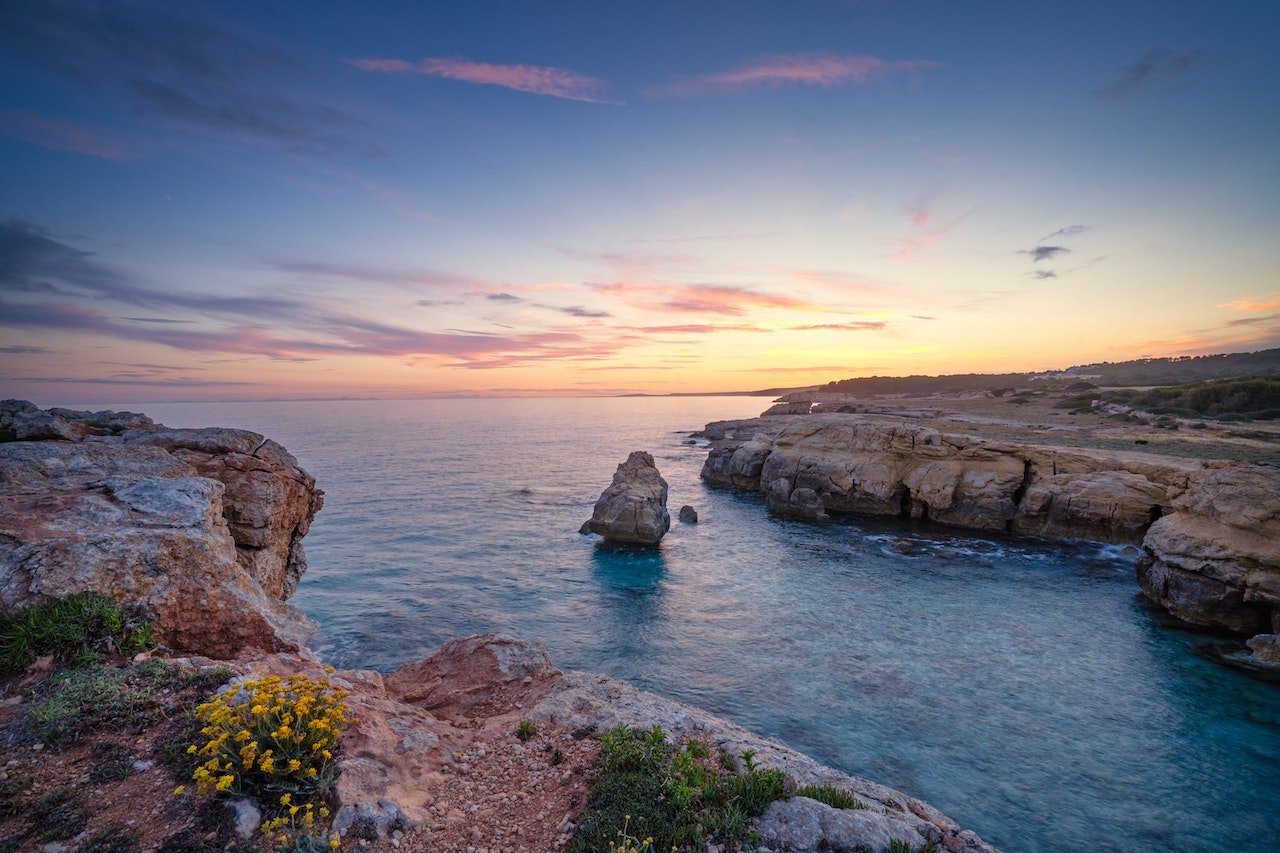
Photo by Juliana Chyzhova.
Hello from the flight home. Right now, we’re somewhere over the Atlantic. By the time you read this, if all goes according to plan, we should be home.
Remember the conference we told you about? The one with all the founders on a small island off the coast of Spain? The one with an outdoor stage and the beach as a backdrop? That was this past week. And if there’s a non-obnoxious way to say that it was even better than we imagined, it was.
Back in the saddle again
Decelera was our first in-person event in more than three years. Our first overseas business travel in the history of the company. And our first tech conference in a very long time
This loomed so large in the background while we prepped our session, that we worked it into the talk. Not as an anecdote. It became the whole talk.
The last time we had been on stage was in early March 2020. A week later, the world shut down. And so we told the story of how our business almost died. Why it didn’t. And what that means for other folks out in the world trying to do hard things.
Some of you know this story.
In 2017 when we launched Raw Signal Group, we started as a fully in-person company, with no digital programming at all. We did it on purpose. The two of us had never seen, nor attended, online programming that we enjoyed. At best they were boring, at worst, they were physically painful. And, anyhow, we couldn’t imagine doing the deep-end, meaningful work with bosses, delivered via zoom.
And if this were a different newsletter, we’d make it sound easy. Like we saw the writing on the wall in 2020, made the strategic pivot to digital, launched to immediate success and never looked back. But that’s not how it happened. We needed help seeing it as anything other than a total drag. So we interviewed everyone we knew who ran a solid digital program. Then we took all of those best practices and put them into the first recordings for our digital programs. And when we asked for feedback, Adrian (employee #1) said we sounded too sad. Too sad! So we threw away what we had and then re-recorded the entire thing. All while stifling giggles about how morose we sounded the first time around.
That revamped digital program is still the most successful RSG program of all time.
We were wrong. But the interesting thing isn’t that we had a limiting belief and the universe was like “ha ha ha” and then we let go of that limiting belief. The part the founders in Spain wanted to know about (again and again) was how we got from, “We don’t wanna” to “We did the damn thing.”
Bad news: the only way around is through
A big part of our job over the last week, outside of the story telling, boiled down to, “Talk with them. And try to be helpful.” There’s an intensity when you talk with founders — they hold the success of their organization so close to their hearts that every business conversation becomes personal. And, maybe because we led with vulnerability in our own talk, those conversations moved to a tender place pretty swiftly.
We talked with a team whose business was growing so quickly that it desperately needed more process. But the founders hated the idea of writing more process docs. And their team wasn’t reading the ones they already had. And that problem was getting harder to ignore.
We talked with several teams whose struggles to build their businesses were all tangled up with an inability to work together. And that problem was getting harder to ignore, too.
Over and over, it was a week of talking with energetic and engaged people whose organizations were asking new things of them. And whose problems were getting harder to ignore. In a superficial way, the particulars are all over the map. But the core thread running through all of them was this nervous, avoidant fear. The same one we had about doing our work online in 2020. It’s not denial — not exactly. They can acknowledge it, and spell out what needs to happen.
They just know they’re gonna hate it.
Good news: there are many ways through
So we’re sitting here. Writing you all from this airplane. And it’s clear to us now how many of the questions and concerns we heard this week were different forms of the same problem. And it’s also clear that we asked them different forms of the same question.
What if, for a minute, you stop trying to figure out how to do this thing you hate? If the thing has to happen, can we get more creative about how to do it in a way you don’t hate at all?
Or, put another way. When the what is clear, and important, it’s worth spending some creative energy on finding a good how.
Your team might need better process as you scale. But do they really need you to write a bunch of documentation that you hate, and that they won’t read? How else can we build up shared operating principles, context, and safeguards? Is this is a place mentorship can be helpful? Or automation? Where are they looking for structure today, organically? Can you meet them there, and would that feel less awful?
The jet lag is kicking in so we’ll bottom line it quick: there’s nothing about this that is founder-specific. Or process-specific. Or Spain-specific. If there are things you know you need to do. A problem you know you need to address, that you’re avoiding because you worry it’s going to be awful. This isn’t us telling you to avoid it. Avoiding it hasn’t helped so far. This is just a gentle invitation to ask yourself if there might be a better way of getting there.
– Melissa and Johnathan






